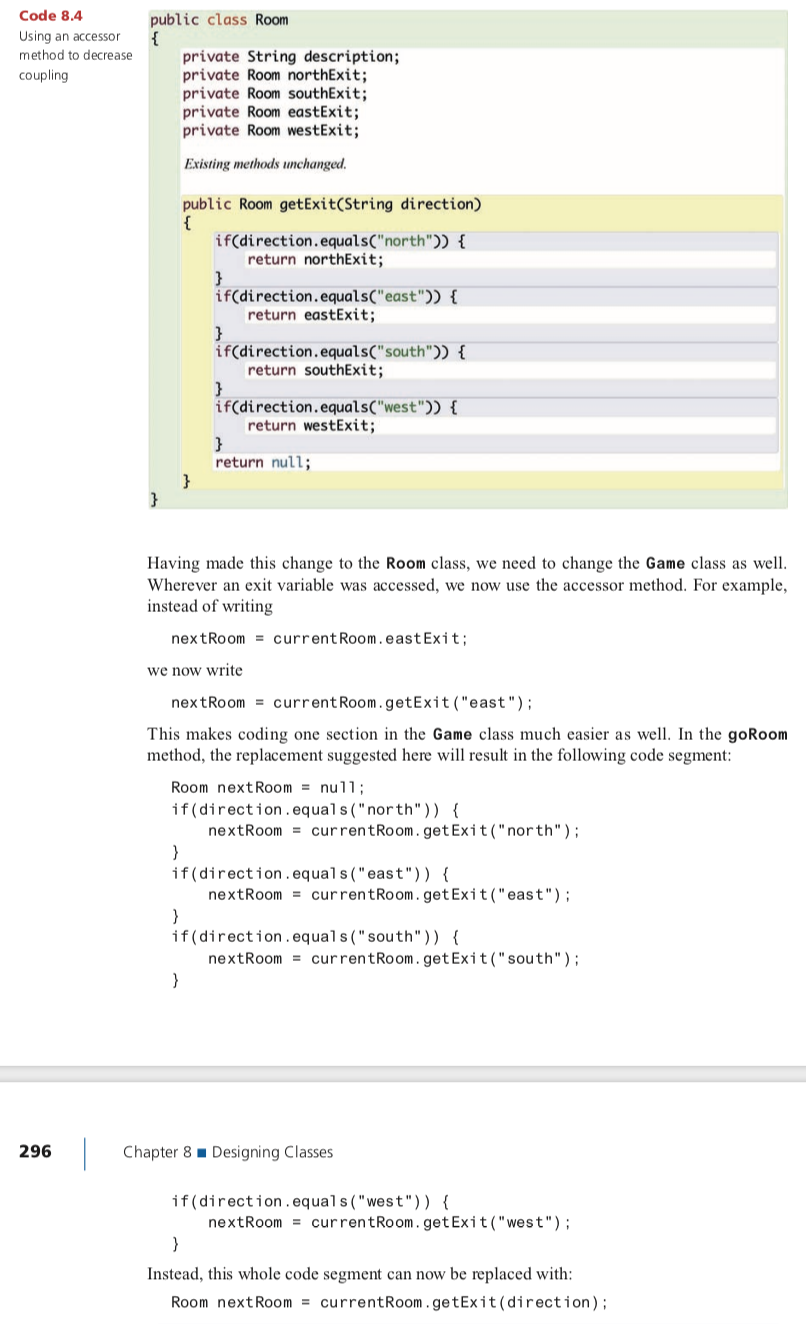Answered step by step
Verified Expert Solution
Question
1 Approved Answer
Complete Exercise 6e: 8.4 . Create a map of your game scenario in any common electronic format (such as .pdf, .doc, .pptx, .jpg, etc.). Update
- Complete Exercise 6e: 8.4 .
- Create a map of your game scenario in any common electronic format (such as .pdf, .doc, .pptx, .jpg, etc.).
- Update the source code of your zuul project to create the rooms and connections as you designed them.
- Update the welcome and help messages to match your scenario.
- The rooms created in your zuul project and the connections from one room to another should match your map.
- Make sure the connections between rooms are clear in your map. I will assume that connections between rooms are bidirectional unless you indicate otherwise (e.g., with arrowheads).
- Test your program.
- Document your changes.
- Adjust the comment block at the top of the file to include a 1-2 sentence description of your specific game scenario.

Step by Step Solution
There are 3 Steps involved in it
Step: 1

Get Instant Access to Expert-Tailored Solutions
See step-by-step solutions with expert insights and AI powered tools for academic success
Step: 2

Step: 3

Ace Your Homework with AI
Get the answers you need in no time with our AI-driven, step-by-step assistance
Get Started


